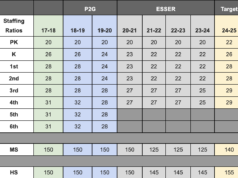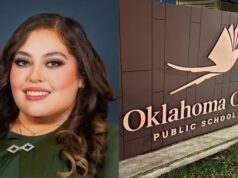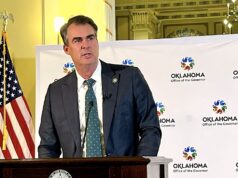
Back in 2008, two students at Brown University recognized “the extent to which [the] democratic spirit had been lost in our current political environment, especially amongst young people.” In response, Anna Ninan and Scott Warren founded a national organization, Generation Citizen. Generation Citizen promotes “action civics,” a student–driven process for debating and building consensus on collaborative solutions to problems that are crucial to young people.
The program began in Oklahoma a year ago, serving 11 classes. College-student volunteers help coach high school students and teachers on a 21st-century version of project-based learning. In its old-fashioned group-learning process, teachers don’t direct students, but the adult in the room knows what the basic endpoint will be. With Generation Citizen, the students design, innovate and then set the goals.
Generation Citizen doesn’t “cream” or focus on honors or advanced-placement students. Although many students have individual education programs, their exuberance is prompted, in large part, by the way that their agency is respected. The kids have a say in every aspect of the projects — including the assessment part. Evaluation of their work is an evolving diagnostic process designed to improve the Generation Citizen program itself as well as America’s democracy as a whole.
OKCPS students flood Capitol for Civics Day
Generation Citizen held its bi-annual Civics Day on Dec. 8 at the Oklahoma State Capitol. Teams of students from Dimensions Academy North, John Marshall, Northwest Classen, Southeast and South Moore high schools identified community issues and made presentations on engaging local government to craft solutions. These class projects embodied Generation Citizen’s values of:
- grassroots change,
- systemic impact,
- collaboration and diversity,
- action
- and open-mindedness.
Sharing the day with students was an amazing adrenaline rush. The students were bright, articulate, conscientious and reflective. I was especially blown away by their research skills, emotional maturity and courage.
Personal stories illustrate policy connections
When an immigrant explained how a brutal state policy contributed to the death of her mother, another student who had spent a half-dozen years in foster care anticipated her emotion and provided a hug. Yet another student remained calm in describing the recent deportation of his mother.
Too often, however, my conflicting feelings took over. I met a student who is a family member of one of my deceased former students. Another soft-spoken student said he only spent a few days as a young child in state custody, but the experience prompted him to develop expertise on the subject. A student/mentor had to briefly leave the presentation to counsel a foster child who texted him.
A kid who had academic excellence and college leadership written all over him said he couldn’t afford to attend college or place his family in debt, and that leads to an emerging Generation Citizen project: The program’s university-student coaches will be stepping up the process for advising kids who seek to become first-generation college graduates.
High schoolers identify problems, craft solutions
I loved conversing with John Marshall students about gun violence. They noted that 40 percent of teen gun deaths accidentally occurred inside homes and thus stressed the role of education on safety and decision-making.
Next, I listened to Northwest Classen students’ worries about discrimination based on the immigration status of their classmates. Their first goal is to create a multicultural week at Northwest, which would prompt conversations between English-language learners (ELLs) and non-ELL students. Southeast students also presented a powerful, evidence-driven case for reforming Oklahoma’s foster care system.
Other students schooled me on cuts to education budgets, school lunch policies, issues regarding extracurricular activities, the recruitment of foster parents, the opioid crisis, problems in interacting with the police, child hunger, sex education, arts funding, teacher retention and criminal justice reform.
Scaling Generation Citizen into earlier grades
One of the key concerns of the 2017 Oklahoma Academy‘s in-depth analysis of low voter turnout was the need for holistic civics education for our youngest elementary students. Generation Citizen seeks to expand into the early grades, teaching them about their own agency and consensus building. To scale up, it will share its methods, processes and mindset with classroom teachers who join this adventure. (By the way, Generation Citizen has been thrilled by the support it has received from the OKCPS and other districts.)




















